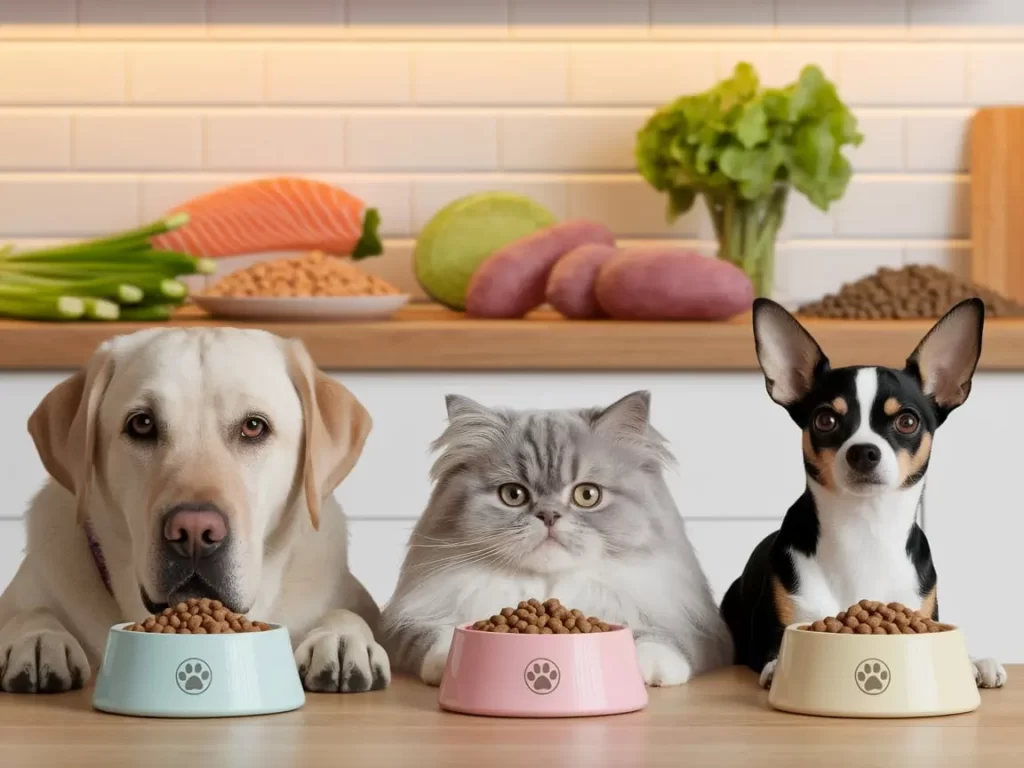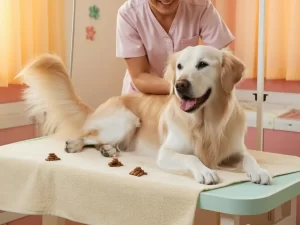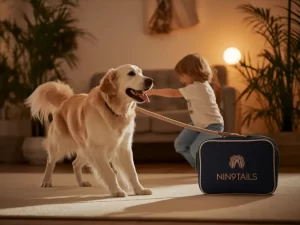When it comes to pet health, there’s no one-size-fits-all approach—especially with nutrition. Just as different dog and cat breeds vary in size, energy level, and coat type, their dietary needs also differ. Understanding these unique needs can significantly impact your pet’s long-term health, energy, and even behavior.
In this guide, we’ll explore how to tailor your pet’s diet based on their breed, ensuring they get the nutrients they need to live a happy and healthy life.
Why Breed-Specific Nutrition Matters
Each breed has its own metabolic rate, digestive tendencies, and health predispositions. Feeding a high-energy breed the same food as a more sedentary one can lead to issues like obesity, lethargy, or nutritional deficiencies.
For example:
- Labradors are prone to obesity and joint issues—so they need calorie-controlled diets with glucosamine.
- Persian cats, with their long hair, benefit from omega-3s and omega-6s for skin and coat health.
- Toy breeds like Chihuahuas may require calorie-dense food in small portions to maintain energy levels.
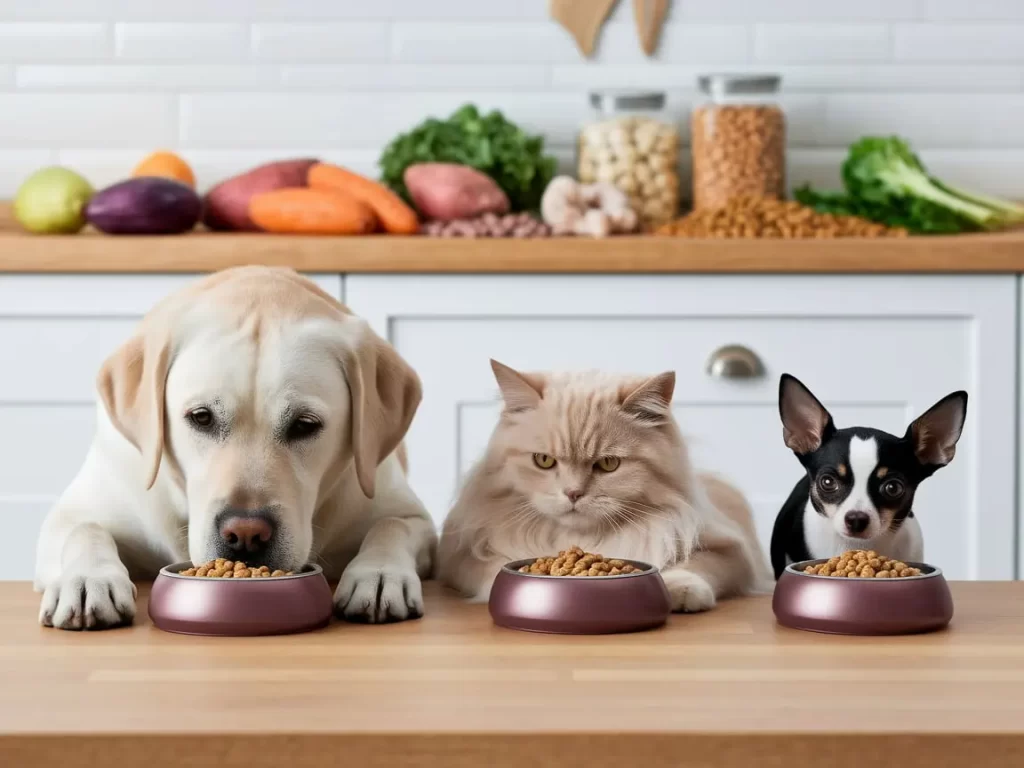
Key Factors to Consider by Breed
1. Size and Weight
- Large breeds (e.g., German Shepherds, Great Danes) require joint-supporting nutrients and controlled calcium for bone health.
- Small breeds (e.g., Pomeranians, Shih Tzus) often need high-energy foods in smaller kibble sizes for easier chewing.
2. Coat Type
- Breeds like Huskies or Maine Coons with thick coats benefit from foods rich in fatty acids, biotin, and zinc to reduce shedding and prevent dry skin.
3. Activity Level
- Working breeds (like Border Collies) burn more calories and require higher protein content.
- Couch-loving breeds (like Bulldogs or Ragdolls) may thrive on a weight-control formula with fewer calories and more fiber.
4. Allergy Risks
Some breeds, such as Boxers or West Highland White Terriers, are more prone to food allergies and sensitivities. Grain-free or limited-ingredient diets may be helpful.
Special Needs for Puppies and Seniors
No matter the breed, age also plays a critical role:
- Puppies require DHA for brain development and more protein for growth.
- Senior pets often need lower-calorie diets with joint-supporting nutrients like glucosamine and chondroitin.
Breed-specific senior and puppy formulas are widely available and recommended for optimal health.
How to Choose the Right Breed-Specific Food
- Read the Label: Look for real meat sources, essential fatty acids, and added vitamins and minerals.
- Avoid Fillers: Stay away from foods with by-products, artificial additives, or excessive fillers like corn.
- Ask a Vet: A breed-specific nutrition plan is best discussed with a veterinarian or pet nutritionist.
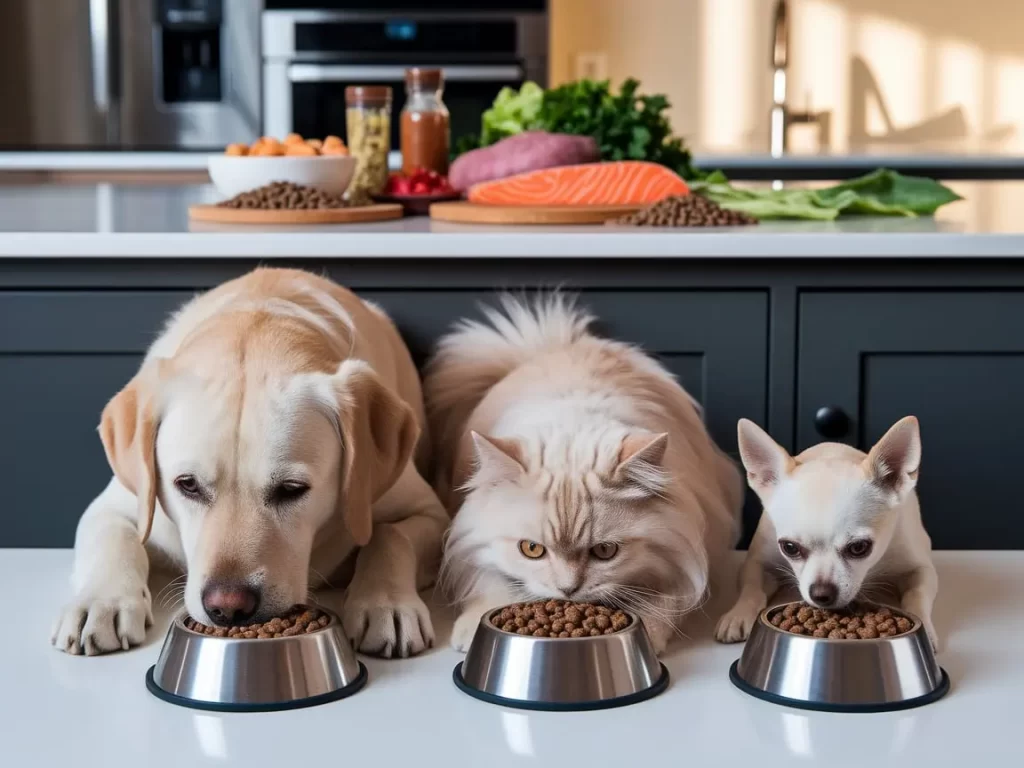
Pro Tip: Don’t Forget Portion Control
Even the best diet can cause harm if portions are off. Overfeeding leads to obesity, while underfeeding can cause malnutrition. Use breed-appropriate feeding guides and monitor weight regularly.
Complete Care: Grooming and Nutrition Go Hand-in-Hand
Proper nutrition isn’t just about what’s in the bowl—it also affects your pet’s coat, skin, energy, and even grooming needs.
That’s why pairing a breed-specific diet with regular grooming is the secret to a happy, healthy pet.
Introducing Nin9Tails – Dubai’s Best Mobile Pet Grooming Service
If you’re in Dubai and want grooming that matches the care you put into your pet’s nutrition, look no further than Nin9Tails.
Nin9Tails offers premium mobile grooming services right at your doorstep—whether you have a fluffy Persian cat or a high-energy Husky. Their experienced groomers understand the grooming needs that align with breed-specific care, ensuring your pet looks and feels their best.
- Breed-specific haircuts and grooming
- Spa-grade bath and blow-dry
- Low-stress environment (no cages or waiting rooms)
Healthy pets deserve expert care inside and out. Let Nin9Tails come to you—because your pet deserves nothing less.

